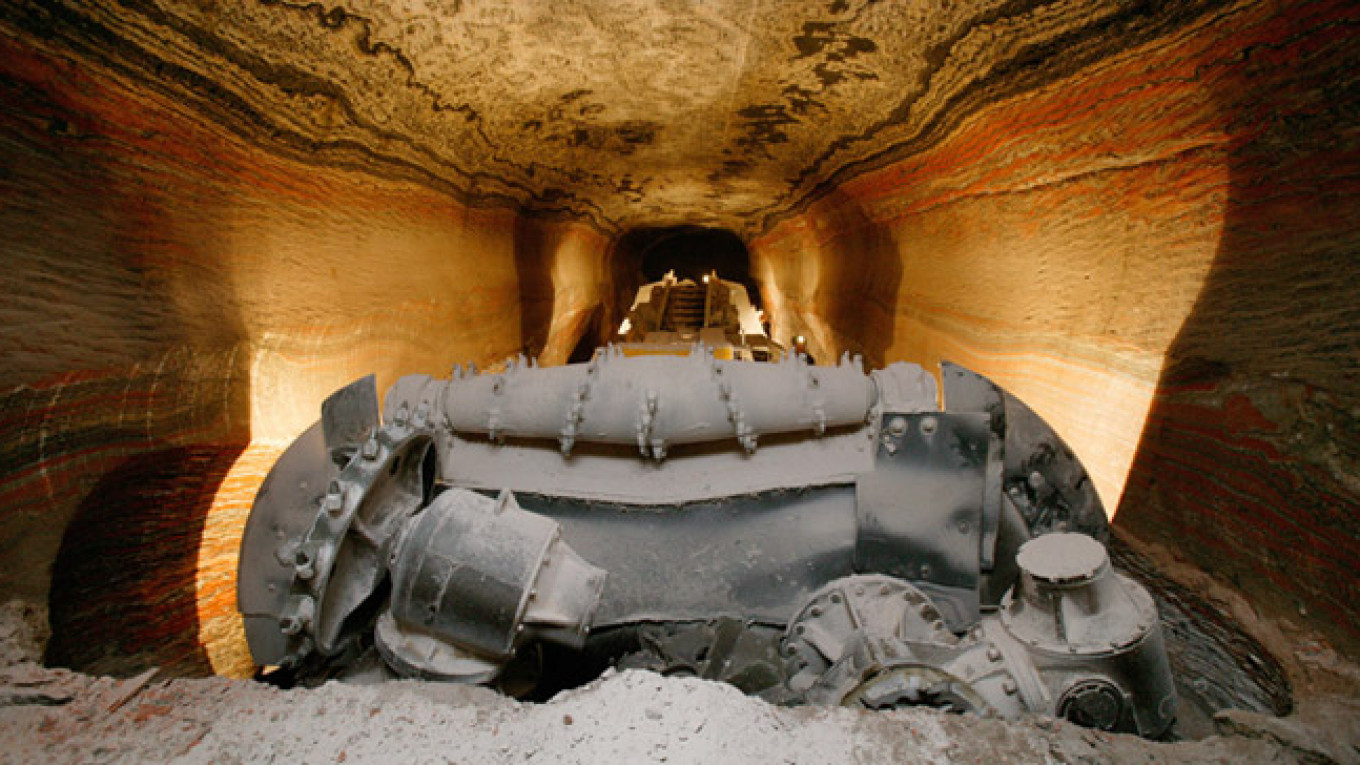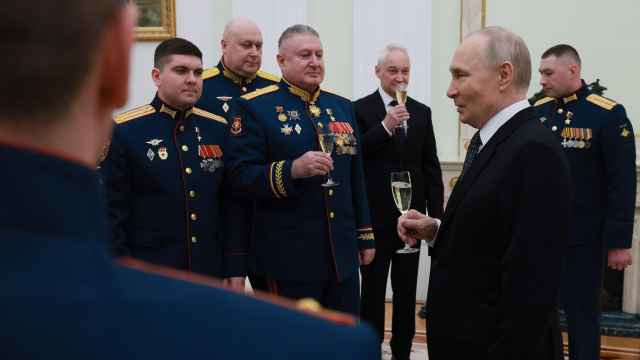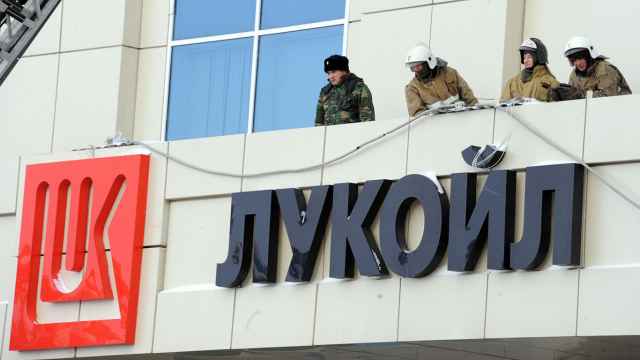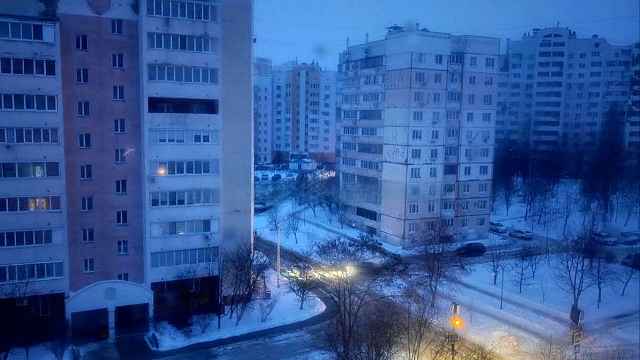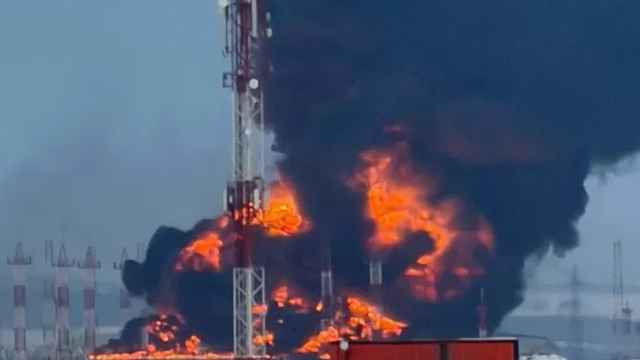LONDON — Russia's Uralkali will likely see minimal impact from Western sanctions on Moscow as the world's top potash producer focuses its business on emerging markets and can switch to nondollar currencies, its chief executive said.
Uralkali last year rocked the market for potash, an essential agricultural fertilizer, with a surprise exit from a powerful joint venture with Belarus that caused prices to collapse. It now expects 2014 prices to recover as demand grows and stability is restored in the previously tightly-controlled market.
The U.S. and European Union have in recent months imposed several rounds of sanctions on Russian individuals and companies linked to President Vladimir Putin's closest circles over Moscow's annexation of Crimea and support of pro-Russian rebels in eastern Ukraine.
The sanctions targeted the heads of Russia's top oil producer Rosneft as well as several banks, leading some Western companies and banks to scale back ties with Russia.
Among the individuals targeted is also Sergei Chemezov, the head of the powerful conglomerate Rostec, who also acts as chairman of the Uralkali board.
But Uralkali chief executive officer Dmitry Osipov said the firm has felt no impact from sanctions.
"On possible sanctions, we believe that the possibility is low because all our business is about food security globally. Our final customers are farmers. We are talking about wheat, corn, rice so we are really a peaceful industry. So we believe the probability is low," he said.
"Our main markets are in the BRICs [Brazil, Russia, India and China] with less exposure to the U.S. or Europe."
Only 16 percent of sales are in the U.S. and Europe, according to a company presentation.
Technology
As Washington and Brussels weigh further sanctions on Moscow, new measures could limit Russia's access to advanced drilling and mining technology that would hurt new oil and gas exploration.
Though much of its mining equipment and technology is bought from Germany, Osipov does not expect European sanctions to hit Uralkali's ties with its German suppliers.
German companies have been ramping up pressure on Merkel to avoid sanctions, warning of lasting damage to domestic firms and the broader economy if Moscow is hit hard.
Uralkali, which operates five potash mines in the Perm region saw no risks to transactions in dollars but in the worst-case scenario could switch to other currencies.
"Up till now we have not seen any risks associated with transactions in dollars. But we can easily switch to local currencies for trading in developing countries," chief financial officer Victor Belyakov said.
Too Many "Ifs"
Osipov said Belarussian President Alexander Lukashenko last month had a "very constructive conversation" with new Uralkali co-owner Dmitry Mazepin on a possible the revival of the Russia-Belarussian joint venture Belarus Potash Company, or BPC.
Uralkali quit BPC last July, causing a severe diplomatic row between the two countries and leading to a major change in Uralkali's ownership.
Talks have nevertheless made little progress so far as "there are too many ifs," Osipov said.
"The interest of Uralkali is first for us. It must be first of all beneficial for Uralkali and its shareholders. We will not sign an agreement if it is not beneficial."
Belarus wants the new BPC will be located in Minsk, while Uralkali has stated it prefers to create a Swiss-based trading company.
Rising From Floor
Uralkali expects global potash prices to rise this year after crashing last year following the breakup of BPC.
"In the past six months we saw some positive price movements," said Oleg Petrov, director for sales and marketing. A supply contract signed with China in January at $305 a ton, down nearly a quarter from 2013, set the floor for global prices, he said.
"The first half [of 2014] looks very healthy. In the second half we will have the Brazilian season starting in June until September. We hope there will be positive momentum based on seasonality. We expect summer time to be very strong." he said.
Uralkali last month reported a 58-percent drop in 2013 net profit, mainly the result of a sharp fall in global prices following its exit from the BPC joint venture.
A Message from The Moscow Times:
Dear readers,
We are facing unprecedented challenges. Russia's Prosecutor General's Office has designated The Moscow Times as an "undesirable" organization, criminalizing our work and putting our staff at risk of prosecution. This follows our earlier unjust labeling as a "foreign agent."
These actions are direct attempts to silence independent journalism in Russia. The authorities claim our work "discredits the decisions of the Russian leadership." We see things differently: we strive to provide accurate, unbiased reporting on Russia.
We, the journalists of The Moscow Times, refuse to be silenced. But to continue our work, we need your help.
Your support, no matter how small, makes a world of difference. If you can, please support us monthly starting from just $2. It's quick to set up, and every contribution makes a significant impact.
By supporting The Moscow Times, you're defending open, independent journalism in the face of repression. Thank you for standing with us.
Remind me later.


